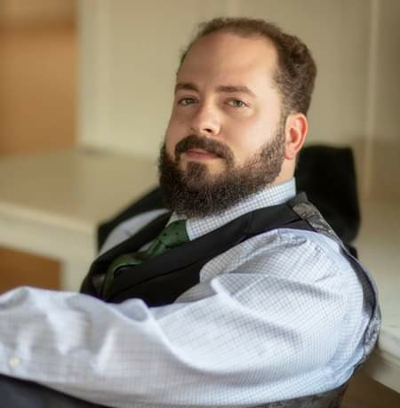As I was looking for something new to read the other day, I pulled a few books off the shelves at home and found that I had a commentary on the letter to the Ephesians written by the Rev. Dr. John Mackay, who is something of a legend in Presbyterian academics. This commentary is a very impressive and thoughtful piece of scholarship, to say the least. Mackay starts his commentary on the letter to the Ephesians with an interesting statement: He says that from the time humans first walked the earth, there has been what he called a “great rift." And this great rift has divided humans from God, humans from each other, and it has even divided the human heart.
Mackay then listed the ways in which humans have historically tried, on their own, to mend this rift. The first attempt is what he called the ways of wisdom, as he traced the early Greek philosopher’s search for a universal truth. Then Mackay traced the Enlightenment philosopher’s pursuit of a rationality that was self-evident to all. He also traced the rise and promises of science and technology. And he even traced what he called the “ways of power," through which empires have tried over the centuries to unite the world under a single rule. But he said that none of these ways have actually been able to bind the broken world back together. The great rift still exists today despite them.
People are also reading…
After all of this brilliant historical exegesis, Mackay then joins the apostle Paul, who wrote the letter to the Ephesians, in saying that the divided world, and the divided church, can only be healed by its creator who holds all things together.
Mackay says that at least the church should believe this, and that we should demonstrate this in our refusal to settle for a community with rifts or with dividing walls. Furthermore, he says that we should make it our mission to help heal the divided world, that we might all be made one.
Over the years I’ve been to many beautiful churches with pristine grounds and immaculate construction. It’s always nice to experience the history of the buildings and admire the care that was given to create such magnificent structures, but I’ve also found the obsession with the beautification of church buildings to be a bit odd. It’s as if people have forgotten why the church exists in the first place.

The Rev. Adam Demetros
I can recall one particular church that had a rather large fund just for its stained glass windows. And in order to ensure that this fund was never depleted, they would hold regular fundraisers so that they could keep up with the cleaning and restoration fees. I remember thinking that it was strange that they would put so much of the congregation’s resources and finance into these windows, which are essentially just nice-looking walls.
And have you ever noticed how stained glass windows only look good to the people on the inside? Now don’t get me wrong, a large hole in the wall wouldn’t be a good thing either, and there’s nothing wrong with caring for what has been given to you. In fact, that’s good stewardship. But when the focus is on anything other than what unites us, then it becomes a dividing wall. It creates strangers on the other side, strangers whom we think are nothing like us because they’re not focused on the same things that we are.
Now, history has proven that we’re very good at erecting diving walls, and these walls inevitably separate people and create strangers. But the real problem is that we actually like these divisions. They’re comfortable to us and they help us understand the world around us. So we set up social structures that essentially say, “All the liberals over here, and all the conservatives over here. All the saints up close, and all the sinners in the back. We’d like to have all the people who are like us close to us, and those who are nothing like us can stand off in the corner. In fact, let’s refer to them as ‘them’ and not 'us.'"
But this isn’t the way that the church, or society, was created to be. The good news is that these dividing walls can come down at any time when we’re ready to repent of the sin of division. Because if we can be certain about anything, it’s that the church, our community, our schools and even our families, cannot fully be alive and have strangers in them. It simply doesn’t work that way.
But it’s not just modern-day people who build these walls — even the great temple in Jerusalem had walls that kept the Jews in and the Gentiles out. It also had interior walls that separated the men from the women, and separated the outer courts from the inner courts. And at the center of it all, it had a great veil that separated the Holy of Holies from everything else. But all that these walls have ever really done is create strangers. Gentiles strangers to the worship of Jews. Jews strangers to the worship of Gentiles. And all of us strangers to our creator.
So for the sake of the divided church, our divided community and our divided nation, we must realize what it means to be fully without division and alive in Christ.















